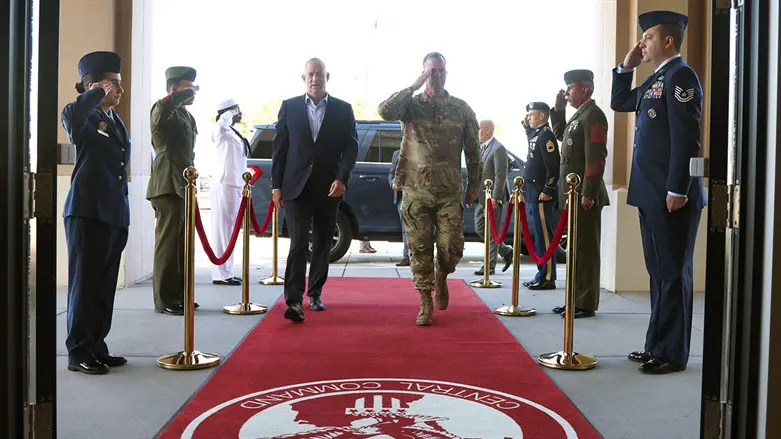
A senior Israeli defense official summarized the meeting between Defense Minister Benny Gantz and US National Security Advisor Jake Sullivan.
The Minister of Defense expressed the opposition of the State of Israel and the Government of Israel to the emerging agreement with Iran: "We have an alliance with the Americans, and we also know how to manage disputes. It is legitimate and right to sit and talk."
The Minister of Defense emphasized the need for a reliable American military option. "At the same time, Israel maintains its freedom of action. We have received positive signals in this regard. There is a feeling that there is a direction to deepen and strengthen capabilities vis-à-vis Iran and the Americans deeply understand that this creates an incentive for the Iranians to be flexible on the subject of an agreement and strengthens the American position. It is important to emphasize: a nuclear agreement, if signed, is not a peace agreement and the joint efforts against Iran will continue. A military threat has enormous weight that can create deterrence regardless of any agreement."
The official estimates that following the withdrawal from the nuclear agreement, led by former President Donald Trump, the nuclear program expanded and became significant. The options at the moment are no agreement, a reality which has allowed Iran to make progress, or a disadvantageous agreement.
"My personal opinion – leaving the nuclear agreement turned out to be a mistake. The question is what to do now. The State of Israel influenced and continues to influence the emerging agreement, but as of this moment it is far from serving the Israeli interest and the Minister of Defense expressed his opposition in the room, in his own way. These messages have been received and are taken into account in my opinion."
"Two things that bother us a lot – the 'sunset' (a date at which restrictions on Iran will be lifted) and the date when they can resume centrifuge activity and the flow of funds to Iranian terrorism in the region as a result of the lifting of sanctions. In our view, there is scope to make the agreement longer and also stronger."
"The operative aspect at CENTCOM is directly related to the nuclear issue. The strategic analysis of Israel and the US is the same – there is a historic opportunity to strengthen the American influence on the region under CENTCOM. It is not trivial that the Minister of Defense arrives and takes a picture with an American squadron, it is a demonstration of power. We discussed significant operational aspects that cannot be expanded upon."
"The recent attacks by the Americans are important. It is important to exercise power even if an agreement is signed. There is room for dialogue between the p+5, and this agreement is not signed and finished. Israel recognizes a sphere of influence here, and as far as I understand, this is done in a matter-of-fact manner while also paying attention to the operative aspect."
"I feel that there is a lot of attention among the Americans, the State of Israel, the government of Israel and the professional bodies are working together and I think that we are influencing and that we are being listened to even if in the end the Americans don't get everything we want."
"In every way there is one trend that will be very difficult to damage – the Israeli influence in the region is getting stronger. The region's players are no less disturbed than we are by the emerging agreement. We have diplomatic channels. In many ways, they put their trust in us that we will convince and influence. The process between us and the regional players will not be affected. The desire of the regional players to deepen the dialogue with us under the umbrella of CENTCOM will continue."

